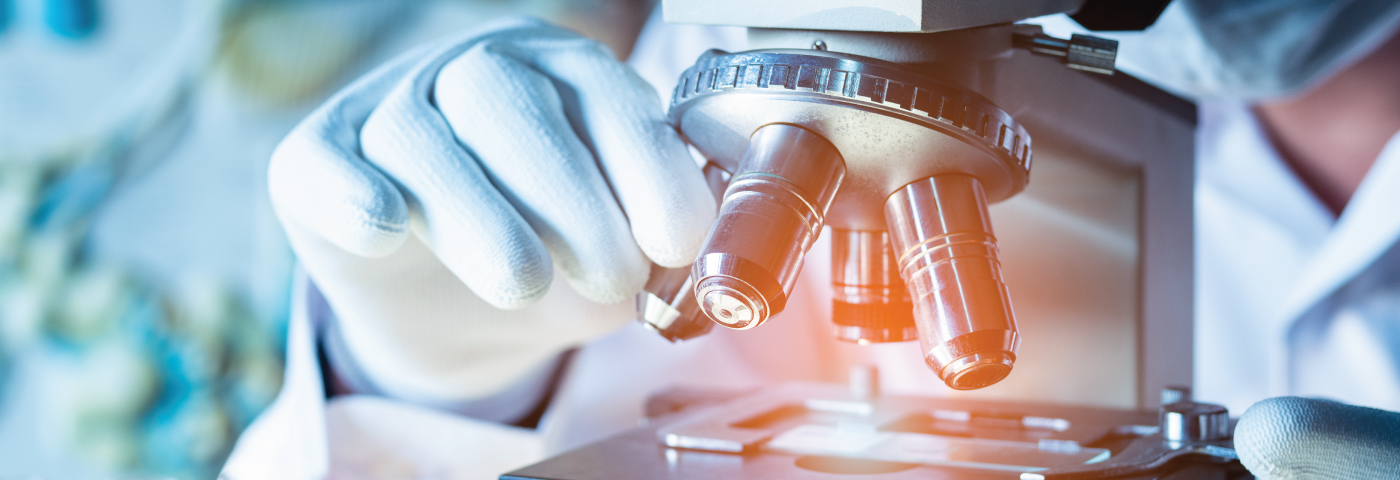
Visit our other sites
-
Fapas - Proficiency Testing
Globally recognised provider of proficiency tests, running over 400 tests annually across an extensive range of matrices and analytes
-
Great Crested Newts Testing
A single sample taken by an ecologist at any time during the newt breeding season can determine their presence or absence, saving you time and money

Creating a Better Future:
Bridging the Gap Between Research & Impact across the Whole Food System
Launched in 2021, Fera's 5-year Science Strategy has been devised and developed by our scientists to respond to the changing global and national landscape, as inclusively as possible. We pursue our Science goals under the key drivers of Protecting, Growing, Supplying, Consuming and Replenishing - translating discovery into impact in support of our partners and clients.
Showcasing our Progress:
Fera applies Original Thinking to support sustainable global food production. As described in our Science Strategy, Fera believes there is no singular approach to delivering food systems fit for the future. As food ecosystems evolve, there is a wealth of emerging technologies to help organisations build new capabilities to address tomorrow’s needs.
Our Annual Impact Reports of our Forward Thinking for the Whole Food System, Science Strategy 2021-2026 showcase a selection of how Fera’s world leading science is helping to solve new global challenges, protect the public and support private sector innovation and development.


Fera's Scientific Change Drivers across the Whole Food System
Market-led, Science Driven
Land Use, Biodiversity & Natural Capital
Research scientists at Fera have a long track record of supporting government and policy in monitoring and evaluating agri-environment schemes designed to support environmental sustainability in agriculture and food production.
Whilst our focus has historically been on the delivery of public goods, with the introduction of environmental land management (ELM) and biodiversity net-gain (BNG) impacting UK land management, we outlined in our Science Strategy our intention to invest in its scale and scope over the next 5 years to respond to greater engagement between the public and private sectors.


How has Fera progressed with this goal?
Following the launch of LAND360 in early 2022, clients from a wider range of sectors have expressed an interest in learning more about Fera’s land use, biodiversity, and natural capital services. Several projects were undertaken for large estates, however Fera has also had discussions and projects from renewable energy companies and house developers.
At the same time, the team has taken on a number of large Defra projects that are examining how the range of policy devices being developed can contribute to achieving the biodiversity targets within the Environment Act.
A third area is also emerging – projects that are funded with a blend of public and private money to enhance natural capital.
Therefore, there are three areas emerging, all of which require the skill sets within Natural Capital/LAND360:
- Public: The Defra policy development strand.
- Private: The LAND360 offer for a varied range of businesses.
- Public / Private: where blended finance comes together to make land use changes that improve natural capital.
Fera's Land Use Team explain how recruitment and attracting talent is contributing to objectives
Circular Economy & Insect Bioconversion
Over the last decade, Fera has been an international pioneer responding to the opportunity to prove and develop the potential of insect bioconversion to upcycle organic waste from an environmental hazard to valorised products under a, near perfect, circular economy.
The carbon neutral circular economy aims at eliminating waste and the continual drain on natural resources. It takes into consideration the reuse, recovery and recycling of products and materials in order to strive for net zero carbon emissions. As part of our Science Strategy, we outlined our goals to contribute through conducting applied research in areas such as insect bioconversion, anaerobic digestion, bio-renewables evaluation in all parts of the food system, including bio-based packaging materials.
We also shared our plans to apply our expertise to support and advise clients to become effective producers of insect-derived products, establishing a forefront position with insect farming companies, waste operators, novel feed and food producers.


How has Fera progressed with this goal?
In 2022, Fera invested £1m to build and commission its, ‘first of a kind’, insect research laboratory. Our new laboratory will upscale Fera’s current insect bioconversion services and help meet the needs of clients from across industry by demonstrating the economic and technical feasibility of insect bioconversion at pilot scale and twinning pilot insect farming to factory scale to de-risk prospective investments of new entrants, helping to accelerate adoption of this new technology by a much wider industrial user base.
The new laboratory will support businesses and government to provide robust scientific evidence on the use of insects for alternative protein production for feed and food as well as for other novel products. This will promote innovation in this nascent industry whilst ensuring that products and processes meet the required quality and safety standards to accelerate their market entry. This area of research supports the circular economy and sustainable food production.
Innovators Future By Insects with strategic partner Fera, winners of WWF and Tesco’s Innovation Connections accelerator scheme award, are working collaboratively with commercial partners to revolutionise the production of aquaculture feed with insect bioconversion.
Read more here.
Fera Science launches £1m purpose-built laboratory for insect bioconversion at York base
Plant Health
Fera has a world leading Plant and Bee Health capability and our diagnostic development and delivery is critical to the UK’s biosecurity and protection of both the agricultural and natural environments. Our scientists have an in-depth knowledge of pest and disease epidemiology enabling the provision of R&D and advice alongside our diagnostics.
Fera outlined in our Science Strategy that we will build on this platform to develop innovative detection and diagnostic techniques and support diagnostic capability away from Sand Hutton, support pre-border checks in exporting countries, provide in-field diagnostic tests, partner with the Industry and Governments, provide ‘production line’ infection and detection, and provide consultancy on where and how to utilise these approaches, among others.


How has Fera progressed with this goal?
EU Exit
Plant related exports must now have a Phytosanitary certificate and high-risk EU imports are being checked by Animal and Plant Health Agency (APHA) Inspectors. Fera’s laboratory capacity and capability is key; as the UK government looks closer at its SPS policies, both in respect of the EU and in line with expansion of trading partners, further changes are likely to lead to more consignments needing to be being checked in the future.
Borders - Heathrow LAMP Training
Fera has developed a framework with APHA to enable the use of LAMP technologies by the inspectors for certain commonly intercepted organisms. Plant Health Inspectors from Heathrow have been trained and are currently undergoing competency assessments prior to use of the tests on real samples.
Ecosystems of Trust
Fera is playing an important role in the Ecosystem of Trust pilot, one of the central tenets of the Governments 2025 UK Border Strategy.
Alongside our partners, we are developing a system that will enable a rigorous risk-based approach to the movement of goods in trade that will contribute to a frictionless border for all but the high-risk items.
Fera's Plant Health Team describe how innovation and ongoing learnings are impacting success
Chemical Safety Stewardship
Fera has a team of expert scientists delivering regulatory studies from one of the strongest platforms in the country, which has been further bolstered by the recent addition of a comprehensive aquatic offering including a unique fully flowthrough mesocosm facility and state of the art flow through laboratories. Able to conduct all aquatic studies required to OECD test guidelines and responding to recent regulatory changes that bring endocrine disruption (ED) to the forefront of chemical assessment.
Strategic priorities continue in environmental fate, metabolism, terrestrial ecotoxicology, pollinators, aquatic ecotoxicology and analytical chemistry with near term growth opportunities in plant protection, animal health and pharmaceuticals in the environment.
Over the next 5 years, Fera has detailed our ill focus investment in the following areas:
- Environmental Fate
- Terrestrial Ecotoxicology
- Pollinators
- Aquatic Ecotoxicology
- Analytical Chemistry
- Field Trials
- Government support
Fera's Chemical Safety Team talk about changing policies and why preparedness is vital for customers
Proficiency Testing - Fapas®
Under the Fapas® brand, Fera leads over 400 internationally recognised proficiency tests (PT) annually, involving more than 5000 individual laboratories in 140 countries. Our principal PT schemes cover Food Chemistry, Food Microbiology, GM Foods, Drinking Water and Environmental Chemistry and Environmental Microbiology. Fera also operates a catalogue of bespoke PTs for individual clients and partners.
As part of Fera's Science Strategy, we plan to invest to grow the geographic reach of Fapas®, to enhance reporting flexibility and in new product development. Immediate priorities include:
- Cross-Fera - Developments in other Fera Science areas.
- Within Fapas® - Flexible and fast reaction, long-term storage and longer transportation stability.
- International - Balancing international versus national PT, maintain and increase international quality standards, safeguarding international food trade.
- Innovation - Developing new PTs that are not reliant on physical samples such as image-based PTs. Enhancing data interpretation PT, calculation error PT, chemical form reporting, virtual sampling PT, virus PT and new non-food environment markets.
The Fapas® Team describe how customer feedback is vital to ongoing product development
Fera's Annual Science Symposium
Demonstrating Impact & Quality of our Science
Fera Science Symposium 2022:
Fera Science is continuing to drive and provide Forward Thinking for the Whole Food System, as demonstrated at our Annual Science Symposium. Inviting thought-leaders from across the sector alongside our colleagues, and PhD students, Fera drives the conversation forward to help solve new global food challenges.
Each year, Fera hosts an annual Science Symposium, inviting industry thought leaders, innovators, experts and policy makers, as well as internal science leads and PhD students to explore pertinent issues within the food system.
Helping Fera to shape the conversations in 2022, speakers from across the sector led sessions across Land-Use, Biopesticides, Biosecurity, Novel Foods and the Circular Economy, Precision Breeding, and Chemical Contaminants in the Food Chain.



Copyright © 2025 Fera Science Limited (“Fera”). All rights reserved.
For further information about how Fera uses any personal data collected from you, please see our Privacy Notice at www.fera.co.uk/privacy-policy.



